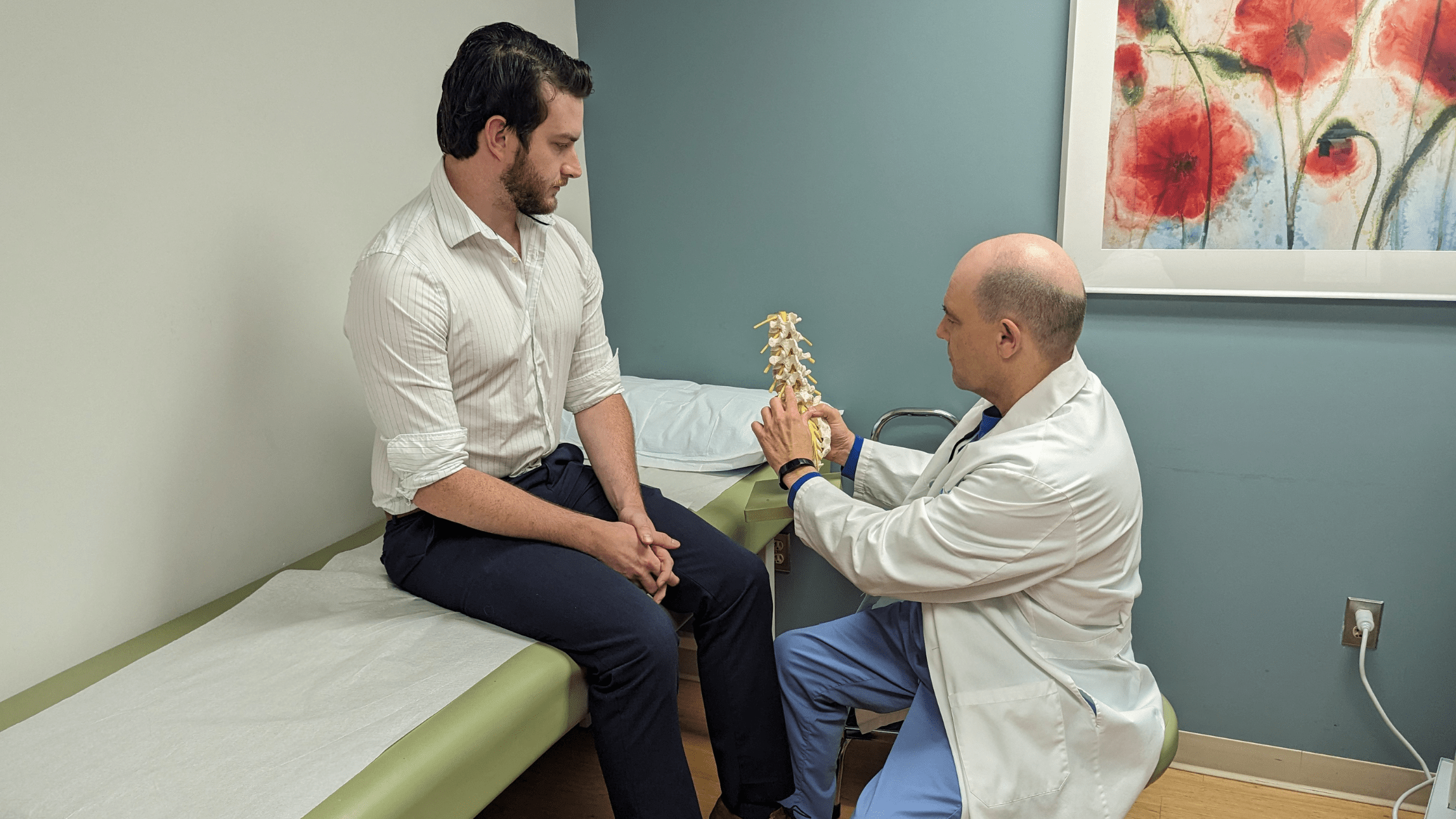When to Seek Medical Care for Back Pain

If you’re suffering from back pain, you are not alone. In fact, back pain is one of the most common conditions that brings people in to see their medical team. While the vast majority of back pain goes away on its own, it’s important to know what to look for that should prompt you to seek medical care.
Signs you need to seek medical care for back pain include:
Your Pain Has Lasted Longer Than a Month
When a person experiences back pain, it can feel like the clock has stopped. Every activity, even sleep, becomes harder and the days can feel long. However, most back pain conditions resolve on their own after a few weeks. If your pain has lasted longer than a month, it may be time to seek medical care.
Your Pain Extends Beyond Your Back
If your pain is localized to a specific region of your back, it may be more likely to be musculoskeletal pain, which is usually self-limiting and can be managed conservatively at home. However, if your pain is traveling elsewhere, such as down your arms or legs or into your groin, this may be a sign that there is more significant nerve involvement.
You Have Numbness, Tingling or Weakness
There are certain features of a low back pain episode that should get your attention and make you more likely to seek medical care. If your back pain corresponds with numbness, tingling or weakness, this may be a sign of nerve involvement as well. While some nerve conditions can resolve on their own without intervention, others require medical care and specific treatment.
Your Back Pain Resulted From a Trauma or Emergency
If you suddenly begin having back pain after a trauma, such as a car accident, fall or other emergency, it’s essential to seek medical care. A trauma increases the likelihood that your back pain will not go away on its own.
At University Orthopaedic Associates, our team of experts works hard to identify the root cause of back pain. If you have back pain, request an appointment with our interventional physiatry and pain management specialists to evaluate the cause of your pain and recommend a treatment plan that works for you, which may include conservative pain management, injections or possibly surgery with one of our spine surgeons. Make sure to contact us today to learn more.

